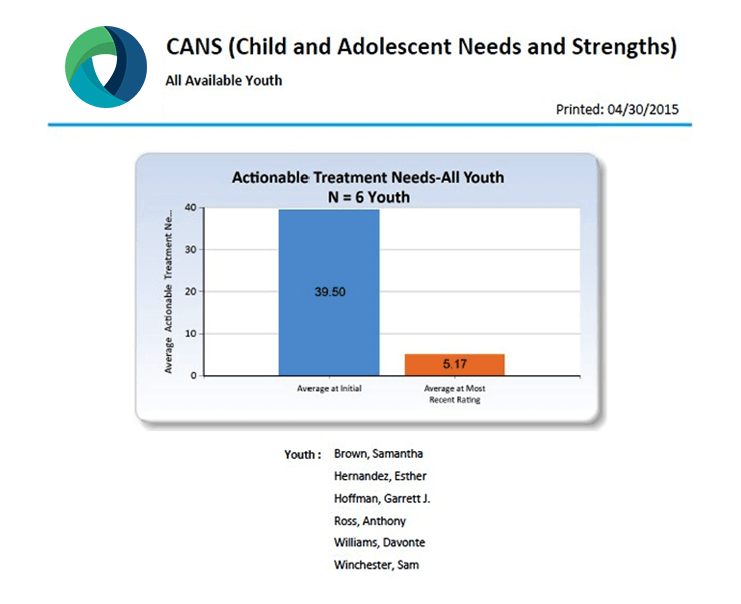Support EHR meaningful use and track outcomes.
FidelityEHR supports multiple assessment tools to help you optimize data-driven decision-making, achieve better outcomes, and manage risk and costs.
FidelityEHR helps care managers monitor and manage multiple critical variables. Insights from embedded assessment tools help to identify risks and needs, support decision making, and support care managers to develop and improve individualized Plans of Care and treatment plans team-based environments. In addition to the licensed assessment tools listed below, the flexible Assessment Builder provides the ability to build and deploy new assessments or refine and customize existing tools. All assessment data is easily accessed through the report builder, quick query, and custom reports.
The Child and Adolescent Needs and Strengths (CANS) assessment is a tool that helps support decision making regarding services and care levels, to help care managers develop the most relevant and effective behavioral health improvement initiatives. The CANS assessment also helps care managers monitor outcomes on an ongoing basis.
The CANS assessments are widely used. In fact, 25 states use different versions of the CANS for various applications in child welfare, mental health, juvenile justice, and early intervention applications. These assessments were initially developed with communication in mind, so they are fundamentally designed to link the assessment process with the process of developing and updating individualized service plans. Many stakeholders, including parents, providers and other partners, deem the CANS easy to use and understand. Unlike other assessments, it does not necessarily require a scoring system in order to produce meaningful, actionable information for a child or family.
Based on over 20 years of research, the CAFAS is an assessment used to evaluate a youth’s day-to-day functioning. It is commonly used to help decision-makers determine the best level of care, type of service, treatment intensity, placements and referrals. Practitioners can quickly complete the CAFAS in 10 minutes based on information gathered during routine clinical evaluations. The CAFAS was designed for children and youths between ages 5 and 19.
The WFI-EZ is a tool that evaluates the quality of the Wraparound process that an individual family receives. Four respondents (caregivers, Wraparound facilitators, team members, and youths who are age 11 or older) contribute to an assessment of fidelity to the defined Wraparound practice model, satisfaction, and basic outcomes. The WFI-EZ has been found to be associated with more positive outcomes for youth and families. Availability of quantitative benchmarks help WFI-EZ data to inform service delivery to an individual youth or a wraparound initiative serving many youth and families.

 1. Child and Adolescent Needs and Strengths (CANS)
1. Child and Adolescent Needs and Strengths (CANS)